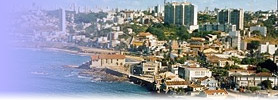 |
This is a session of Topic 5: Statistics education and the wider society Full topic listStatistics education and the statistics professionOrganiser
AbstractThe session considers the enhancement of professional practice in, and improvement of teaching statistics. The papers discuss the ethical and practical issues that arise from using peer assessment to set (i) thresholds of competence of practice and (ii) standards to teach colleagues how to teach statistics. In both cases we consider the extent of statistics education needed.(i) There are a wide variety of views within the statistics profession about the need to maintain the knowledge and skills base of statisticians. Three societies, The Royal Statistical Society (RSS), The Statistical Society of Australia, Inc (SSAI) and the Canadian Statistical Society (CSS), in 1993, 1996 and 2004 respectively, established professional qualifications that recognise a minimum level of competence to practice statistics. Each uses peer review to make judgements on applications from suitably qualified statisticians. Within the profession, especially amongst academics, the need for knowledge, skills and competency audits is not always seen as necessary to do statistics. Indeed, some statisticians, especially from within the academic community and/or within statistical societies, have expressed hostility to establishing professional status. (ii) Consider the following questions:
For university level teachers, in 2004 the RSS accredited a distance-learning Certificate in Teaching Statistics in Higher Education, and so recognised a standard of content for learning how to teach statistics. Few would argue with the need for continuing professional development in a subject that is one of the most dynamic and applicable in the scientific world. However, is self-improvement and review, with no external scrutiny, satisfactory for the statistics profession? Papers
|

